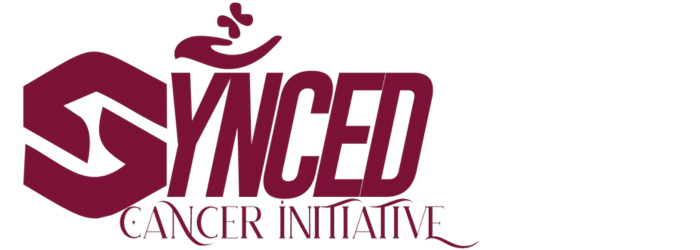A breast cancer diagnosis is a lot to wrap your head around: the scans, the treatments, the doctor’s appointments, the new vocabulary you’re suddenly expected to master. But suppose you’re someone who dreams of having children someday (or wants to keep the option open). In that case, another deeply personal concern often arises—though it’s not always immediately addressed:
“Will I be able to have children after treatment?”
While the primary focus of breast cancer care is survival, fertility is a legitimate and essential part of survivorship planning, especially for individuals of reproductive age. In this blog post, we’ll walk you through how breast cancer treatment can affect fertility, what options exist for fertility preservation, and how pregnancy after treatment is still a possibility for many survivors.
How Breast Cancer Treatment Affects Fertility
Breast cancer is typically treated using one or more of the following approaches:
- Surgery (lumpectomy or mastectomy)
- Chemotherapy
- Hormonal therapy (e.g., tamoxifen, aromatase inhibitors)
- Radiation therapy
Each of these treatments plays a role in saving your life but may affect fertility differently. Understanding “how” is essential for informed decision-making.
Chemotherapy and Fertility
Chemotherapy works by destroying rapidly dividing cells, including cancer cells, but it can also damage healthy cells, including those in the ovaries responsible for egg production. Potential impacts on fertility include:
- Temporary amenorrhea (periods stop but may return after treatment)
- Premature ovarian failure (early menopause, permanent infertility)
- Reduced ovarian reserve (reduced egg count, decreased chances of conception)
Several factors influence the risk of infertility from chemotherapy:
- Age: Women over 35, when you start treatment, are at greater risk of long-term fertility loss.
- Drug type
- Duration and dosage: Longer treatment duration of chemotherapy
Importantly, not all individuals undergoing chemotherapy become infertile. Some people go through chemo, finish treatment, regain menstrual cycles, and go on to conceive naturally.
Hormonal Therapy
If your breast cancer is hormone-receptor-positive (ER+ or PR+), you’ll likely be put on hormonal therapy for 5–10 years. This includes medications like tamoxifen or aromatase inhibitors. These drugs don’t usually cause infertility but can temporarily interfere with fertility by suppressing ovulation or causing menstrual irregularities. Additionally,
- Pregnancy is not advised during hormonal therapy, as the medications can harm fetal development.
- Planning pregnancy requires interrupting treatment, which must be done under medical supervision.
Emerging research supports the idea that some women can pause hormonal therapy temporarily to try for pregnancy—but only under close medical supervision, and it’s something you and your oncologist should plan for together.
Radiation Therapy
For breast cancer, radiation therapy is generally localized to the chest or surrounding lymph nodes. They don’t usually affect fertility because the ovaries are far from the radiation field. However,
- If you receive radiation to your pelvis (not common in breast cancer), fertility could be affected.
- Radiation may still play a role in body changes (fatigue, skin changes, etc.), but your ovaries usually remain untouched.
If your radiation was confined to the breast area, your fertility story may not be heavily impacted by it.
Can You Get Pregnant After Breast Cancer?
Yes, many people can. It depends on your treatment, age, overall health, and how your body responds after treatment ends.
Some people conceive naturally. Others need help through fertility treatments like IVF. And some explore alternative paths like surrogacy, egg or embryo donation, or adoption.
It is highly recommended to consult a fertility specialist before or after treatment to assess your options based on your case.
Fertility Preservation Before Treatment
If you haven’t started treatment yet, fertility preservation is possible. The sooner this conversation happens, the more options you’ll have.
Options include:
- Egg Freezing (Oocyte Cryopreservation): Mature eggs are retrieved, frozen, and stored for future use.
- Embryo Freezing: Like egg freezing, the eggs are fertilized with sperm before freezing, requiring a partner or donor.
- Ovarian Suppression with GnRH Agonists:): These medications “shut down” your ovaries during chemo to help protect them. Think of it like putting them in temporary hibernation.
- Ovarian Tissue Freezing: This is more experimental but involves removing and freezing a piece of your ovarian tissue to be reimplanted later.
Note: These procedures are often expensive and may not be covered by health insurance in Nigeria. But it’s worth considering if you can afford it or can access support from NGOs.
Pregnancy After Treatment
Many breast cancer survivors go on to have healthy pregnancies. However, there are important considerations:
- Wait at least 2 years after treatment before trying to conceive. This is because the risk of recurrence is highest in the first 2–3 years.
- If you were on tamoxifen, you’d need to stop it for at least 3 months before trying for pregnancy, and only with your doctor’s approval.
- You’ll be monitored closely during pregnancy by both your oncologist and obstetrician.
Pregnancy after breast cancer has not been shown to increase the risk of recurrence, even in hormone receptor-positive cases.
Challenges and Resources in Nigeria
Fertility preservation and treatment options in Nigeria come with unique challenges, including:
- High cost: IVF and egg freezing can range from ₦800,000 to over ₦2 million.
- Limited access: Few fertility centres are equipped for oncofertility services.
- Low public awareness: Many patients don’t learn about fertility risks until it’s too late.
However, there are local resources making strides:
- Project Pink Blue – Offers patient navigation, support groups, and connections to fertility services.
- Medicaid Cancer Foundation – Has facilitated partnerships with healthcare providers.
- Breast Without Spot – Educates and advocates for breast cancer awareness and patient support.
In addition, crowdfunding is a valid option, and many cancer survivors have shared their stories to gain support for IVF and surrogacy journeys.
Conclusion
While the road to survivorship is challenging, it is essential to remember that a breast cancer diagnosis does not necessarily mark the end of your fertility journey.
Today, more women than ever are living whole, healthy lives after breast cancer—including those who go on to become mothers. Thanks to ongoing research, fertility preservation strategies, and evolving medical protocols, parenthood remains within reach for many survivors.
If you’re facing treatment or are in remission and have questions about fertility or pregnancy, advocate for yourself. Ask questions. Seek second opinions. Explore financial aid options. And most importantly—hold onto hope.
Breast cancer may alter your path, but it doesn’t define your future.











What do you think?
It is nice to know your opinion. Leave a comment.